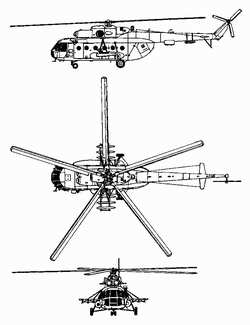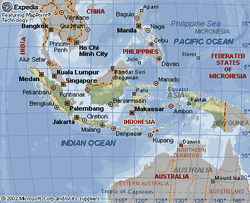Sat, Aug 13, 2022
Near-Peer Pressure
As if heeding still the echoes of General Douglas MacArthur’s vow, the United States has maintained strong bonds of reciprocated friendship with the Philippines. Notwithstanding former Philippine president Rodrigo Duterte’s prioritization of closer relations with China and Russia, the Philippines remain one of America’s oldest Asian trade partners and a strategically important non-NATO ally.

It came as little surprise, therefore, when leaders in the Philippine capital of Manila backed out of a deal that would have seen the East Asian island nation acquire 16 Russian Mi-17 military helicopters. Though confirmed by neither Philippine nor U.S. officials, the move is believed to express Manila’s tacit deference to U.S.-led Western sanctions levied against Moscow in the wake of Russia’s February 2022 invasion of Ukraine.
Philippine National Defense Department spokesman Arsenio Andolong put forth in a statement disseminated by the Philippines’ national news agency that his nation is currently formalizing the termination of the 12.7-billion pesos ($228-million) contract with Russia’s Sovtechnoexport. Mr. Andologng somewhat cryptically added: “We are also preparing to initiate a diplomatic dialogue with the Russian side regarding matters arising from the project’s cancellation. Changes in priorities necessitated by global political developments resulted in the cancellation of the project by the previous administration.”
Mr. Andolong stated also that efforts were underway to retrieve a $48.2-million down-payment his government made on the helicopters in January 2022.
Philippine Defense Secretary Delfin Lorenzana—despite Manila’s insistence as recent as March 2022 that the procurement of the helicopters would go ahead regardless of Russian belligerence in Ukraine—asserted the deal’s cancellation was attributable to concerns over potential U.S. sanctions.

Mr. Lorenzana went on to say the decision to forgo the Mi-17s was approved by former President Rodrigo Duterte, whose administration—in furtherance of its stated objective of modernizing the Philippine military—signed the contract with Sovtechnoexport in November 2021.
Comprising more than seven-thousand islands replete with natural disasters ranging from volcanic eruptions to earthquakes to tsunamis to typhoons, the Philippines are a nation with an acute and enduring need for military transport helicopters. The forfeiture of 16 Mi-17s—the payload and endurance capabilities of which are similar to those of Western transport helicopters albeit at a fraction of the cost—leaves the Philippine military, and by extension the Philippine people in the unenviable position of having to barter their own safety for American goodwill.
More News
He Attempted To Restart The Engine Three Times. On The Third Restart Attempt, He Noticed That Flames Were Coming Out From The Right Wing Near The Fuel Cap Analysis: The pilot repor>[...]
Make Sure You NEVER Miss A New Story From Aero-News Network Do you ever feel like you never see posts from a certain person or page on Facebook or Instagram? Here’s how you c>[...]
From 2009 (YouTube Edition): Leading Air Show Performers Give Their Best Advice for Newcomers On December 6th through December 9th, the Paris Las Vegas Hotel hosted over 1,500 air >[...]
Aero Linx: NASA ASRS ASRS captures confidential reports, analyzes the resulting aviation safety data, and disseminates vital information to the aviation community. The ASRS is an i>[...]
“For our inaugural Pylon Racing Seminar in Roswell, we were thrilled to certify 60 pilots across our six closed-course pylon race classes. Not only did this year’s PRS >[...]
 NTSB Final Report: Rutan Long-EZ
NTSB Final Report: Rutan Long-EZ ANN FAQ: Turn On Post Notifications
ANN FAQ: Turn On Post Notifications Classic Aero-TV: ICAS Perspectives - Advice for New Air Show Performers
Classic Aero-TV: ICAS Perspectives - Advice for New Air Show Performers ANN's Daily Aero-Linx (06.28.25)
ANN's Daily Aero-Linx (06.28.25) Aero-News: Quote of the Day (06.28.25)
Aero-News: Quote of the Day (06.28.25)




